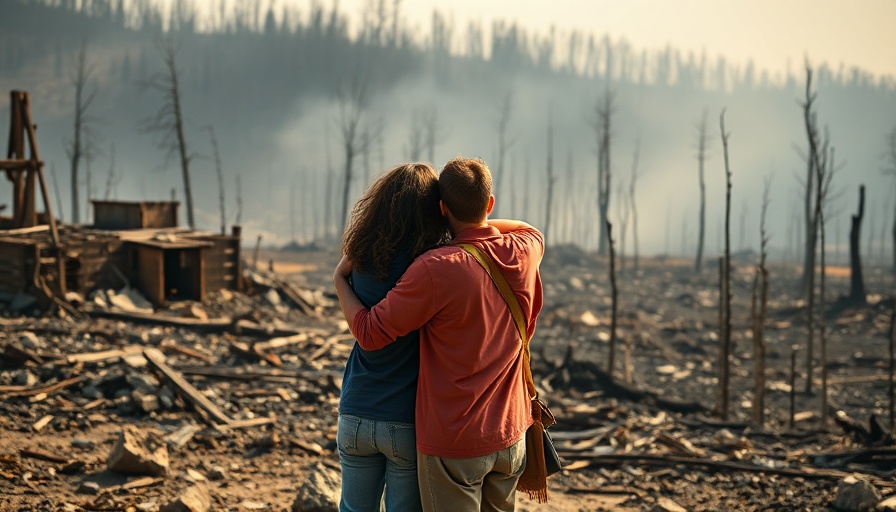
Understanding the Aftermath of Natural Disasters
The recent wildfires in Los Angeles prompt a renewed reflection on the lessons learned from Florida's hurricane experiences. Both instances showcase not only the devastating physical losses but also the emotional scars that linger long after the flames have been extinguished. As leaders, recognizing the extensive impact on employees is essential—not just to those directly affected, but also to those who may have experienced fear and uncertainty during the crisis.
Emotional Turmoil: A Broad Impact
Natural disasters impact not only physical structures but the emotional well-being of entire communities. Survivors grapple with a range of emotions from anxiety to guilt, as they navigate the aftermath of chaos. Leaders must take proactive steps to check on their team members, fostering an environment of support. Regular check-ins and open discussions can serve a dual purpose: ensuring that employees feel valued while effectively assessing their mental health. Encouraging the use of Employee Assistance Programs (EAPs) is vital in this context.
Lessons Learned from Florida’s Resilience
Florida's history with hurricanes illustrates the importance of preparedness in times of uncertainty. Vistage Chairs in Florida utilized a systematic approach to support their community by developing a spreadsheet of needs and forming a dedicated team—referred to as the 'Tiger Team'—to assist those in distress. This organized response highlights the significance of having a plan in place, a measure that businesses in fire-affected regions can replicate. Resilience isn't just about bouncing back; it’s about having a robust network ready to tackle challenges collaboratively.
Facing the Insurance Maze
The insurance process can be a nightmare for disaster victims navigating loss. Victims often face long wait times, complex red tape, and even denials of initial claims. These hurdles can lead to feelings of frustration and disillusionment, particularly when the system seems unhelpful during critical times. Business leaders can play a pivotal role in guiding employees through this complicated process by sharing insights on how to approach insurance claims and possibly connecting them with legal resources or advice on navigating these challenging waters.
Rebuilding Lives, Homes, and Futures
For many, the road to recovery is strewn with obstacles, from securing temporary housing to navigating the rebuilding process. Leaders should prioritize discussions around emotional recovery and long-term support. Offering flexible work options or mental health days can help employees feel supported and engaged, ensuring that they remain connected to their work even as they face severe disruptions in their personal lives.
Community Support: A Lifeline
The strength of communities shines brightest during times of need. Initiatives such as local drives for necessities and volunteer opportunities can help enhance morale and provide physical assistance. Encouraging employees to engage in community recovery efforts can create a sense of belonging and purpose amidst the chaos. Remember, helping others leads to healing and fosters deeper connections within the workplace.
Future Preparedness: Building a Resilient Organization
As we look toward the future, it is clear that businesses must establish robust disaster response and recovery plans. Investing in training employees on resilience and recovery tactics will prepare them to cope with future adversities. Sharing insights from those who have successfully navigated crises cultivates a culture of preparedness. Regular emergency drills, resources, and support systems are essential elements of a competent disaster response measure.
Conclusion
Understanding the emotional toll and logistical challenges faced by wildfire victims can influence how business leaders support their teams. Emphasizing community, communication, and preparedness prepares organizations for future crises and helps mitigate the effects of natural disasters on employees.



Write A Comment